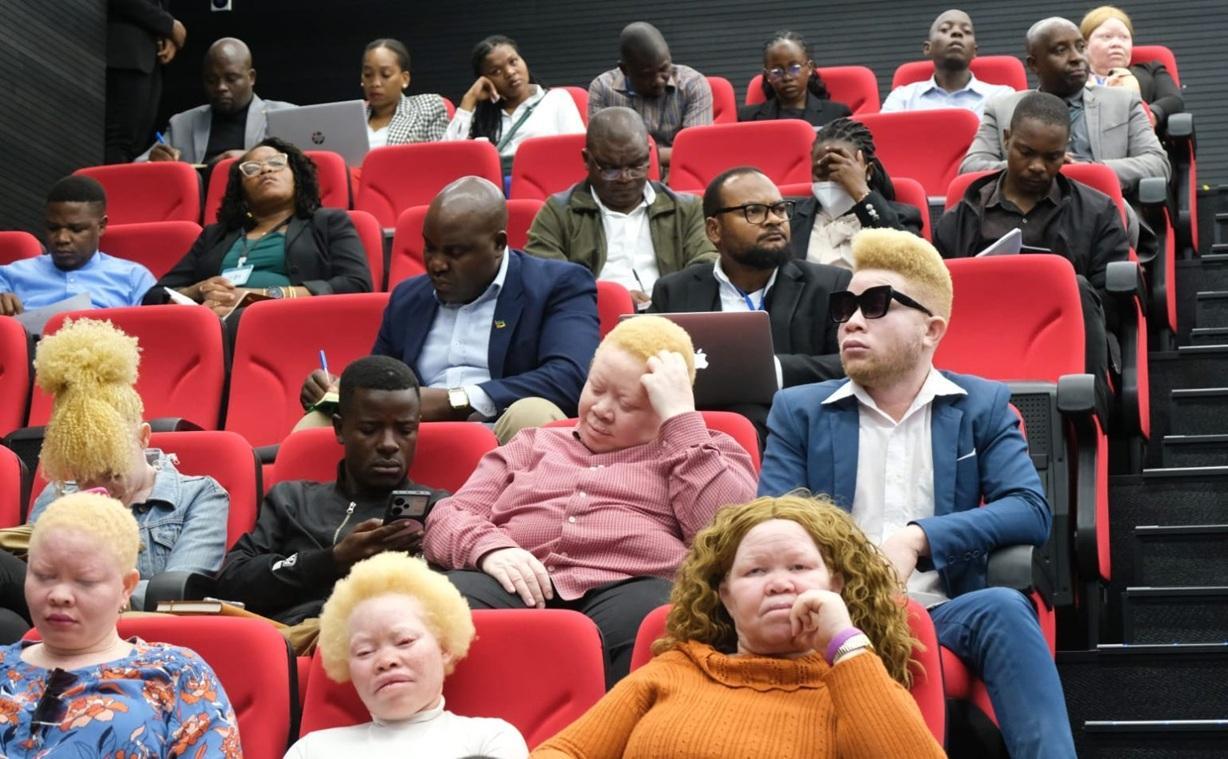Africa-Press – Mozambique. Poor access to information about the causes of albinism, combined with discrimination, ignorance and myths claiming that parts of their bodies have magical powers, makes persons suffering from albinism victims of attacks, discrimination and stigmatization.
As pointed out by Minister of Justice, Constitutional and Religious Affair, Mateus Saize, offenders who attack people with albinism use parts of their bodies to make money on the basis of a belief that these parts increase the potency of ‘magic potions’.
Saize was speaking at the launch of the celebrations for International Albinism Awareness Day, which is celebrated annually on 13 June and this year will be held under the motto “Demanding our rights: Protect our skin, Preserve our lives”.
People with albinism face deep stigma, persistent discrimination and, in extreme cases, brutal violence that can sometimes lead to mutilation.
“That is why they live in fear, not because of their genetic condition, but because of the ignorance, myths and false beliefs that still prevail in some communities in our country,” the minister said.
According to Saize, these harmful practices are unacceptable and must be strongly and firmly repudiated by all, because they constitute a violation of the principles enshrined in the Constitution of the Republic of Mozambique and International Human Rights Treaties.
Therefore, since the approval of the National Action Plan on Albinism in 2015, the Government of Mozambique, together with cooperation partners, has been making efforts that have enabled significant progress in several areas, including psychosocial support, access to quality health care, combating discrimination, human trafficking and organ harvesting.
“We have intensified initiatives with a positive impact, with a main focus on harmonizing criminal laws on crimes against people with albinism; carrying out national and international awareness campaigns; social inclusion, especially of children with albinism in schools,” the minister said.
In addition, the government continues to work with civil society organizations that complement their efforts to promote and defend the rights of people with albinism, as well as supporting their education, health and legal protection.
Despite the progress made, Saize acknowledged that there remain many challenges to be overcome in order to eradicate the stigma and discrimination of people with albinism.
“Our main challenges are the lack of reliable statistical data on the number of people with albinism in Mozambique, the difficult access to specialized health care, the fight against impunity in cases of violence, and the weak inclusion in public policies and national budgets,” he listed.
The occasion, in addition to raising awareness of the urgent need to recognize the rights and needs of people with albinism, also served to launch the “Rights for Inclusion” Project, of the Forum of Mozambican Associations of People with Disabilities (FAMOD), funded by the Norwegian Embassy.
“Through this project, we aim to promote access to rights and social inclusion of people with disabilities and people with albinism in Mozambique, through advocacy, institutional capacity building of organizations of people with disabilities, and support for service providers in adopting a human rights approach in the provision of services,” said President of FAMOD, Zeca Chaúque.
Regarding the launch of the project, the representative of the Amor à Vida Association expressed great satisfaction, as he expects results capable of contributing to “guaranteeing the principles of universality, equality, non-discrimination, respect, tolerance and solidarity embodied in our mother law”.
For More News And Analysis About Mozambique Follow Africa-Press






